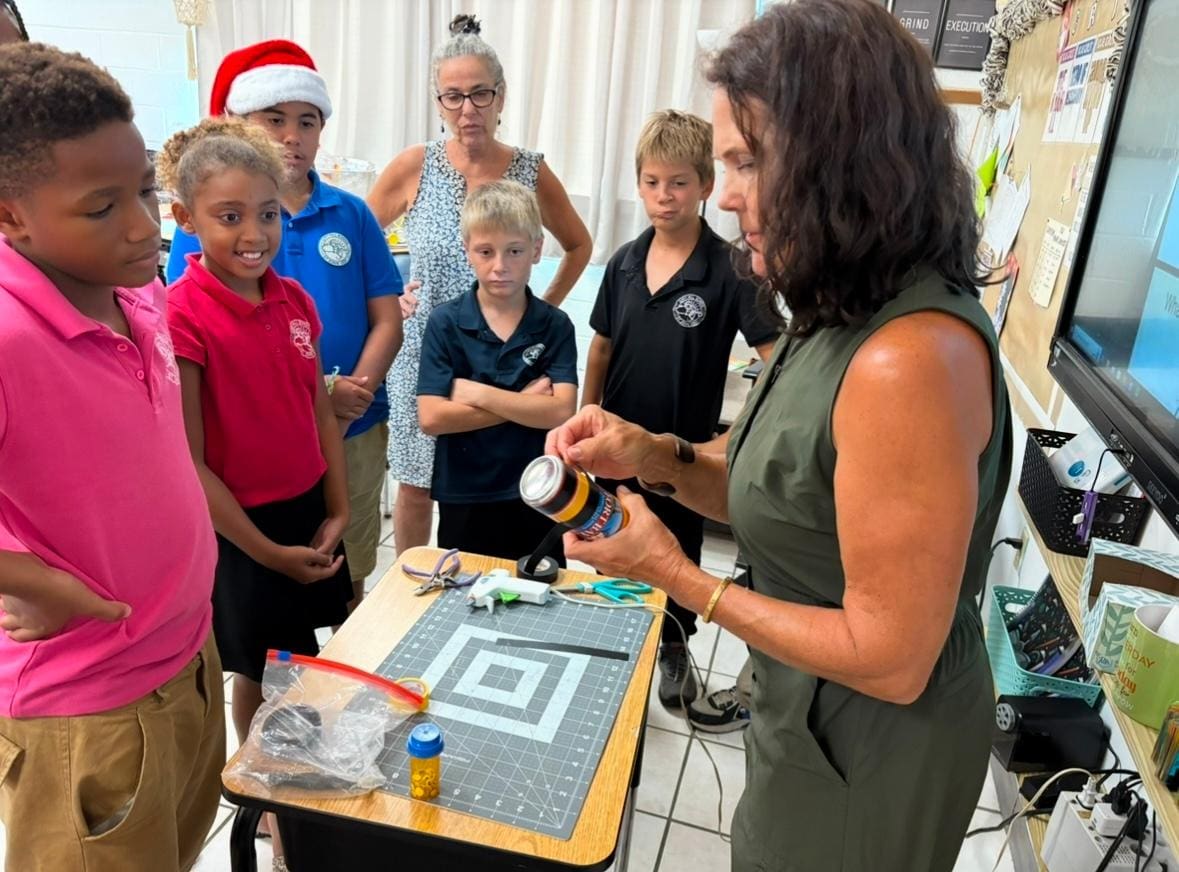
Do you like to create things with your hands? Do you have concerns about the environment? Do you want to participate in a community arts project?
A “yes” to one or more of these questions means you might like to join The Bee Project, a public art project created several years ago in Iowa that is spreading to locations throughout the United States, including the Virgin Islands.
The Bee Project arrived in schools on St. John in December 2024, and it is continuing with community workshops that are free and open to the public on Monday, Feb. 10, from 7 to 8:45 p.m. and on Tuesday, Feb. 11, from 10 to 11:45 a.m.
The art workshops, suitable for all ages, will be held at the St. John School of the Arts in Cruz Bay. Materials will be supplied, and participants may bring their own.
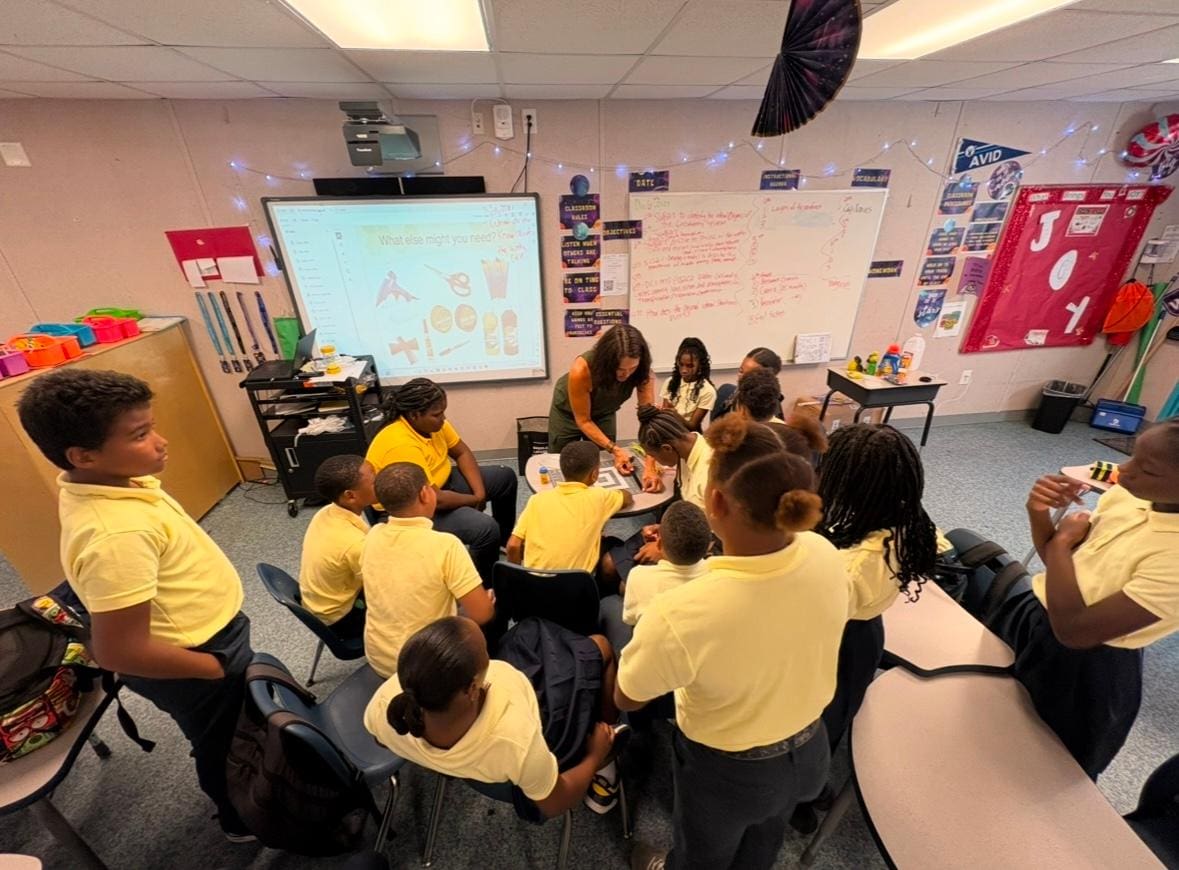
The project’s goal is to increase awareness of the vital role bees play in our environment as pollinators and learn what we can do to protect them. One way to do this is to engage community members in an art project to make bees out of recycled materials and then include them in a beehive structure placed in a public space.
As part of the project, fifth graders in all three schools on St. John have been learning about bees — their various types, their anatomy, their social structure, their role as pollinators — as well as the threats to their survival.
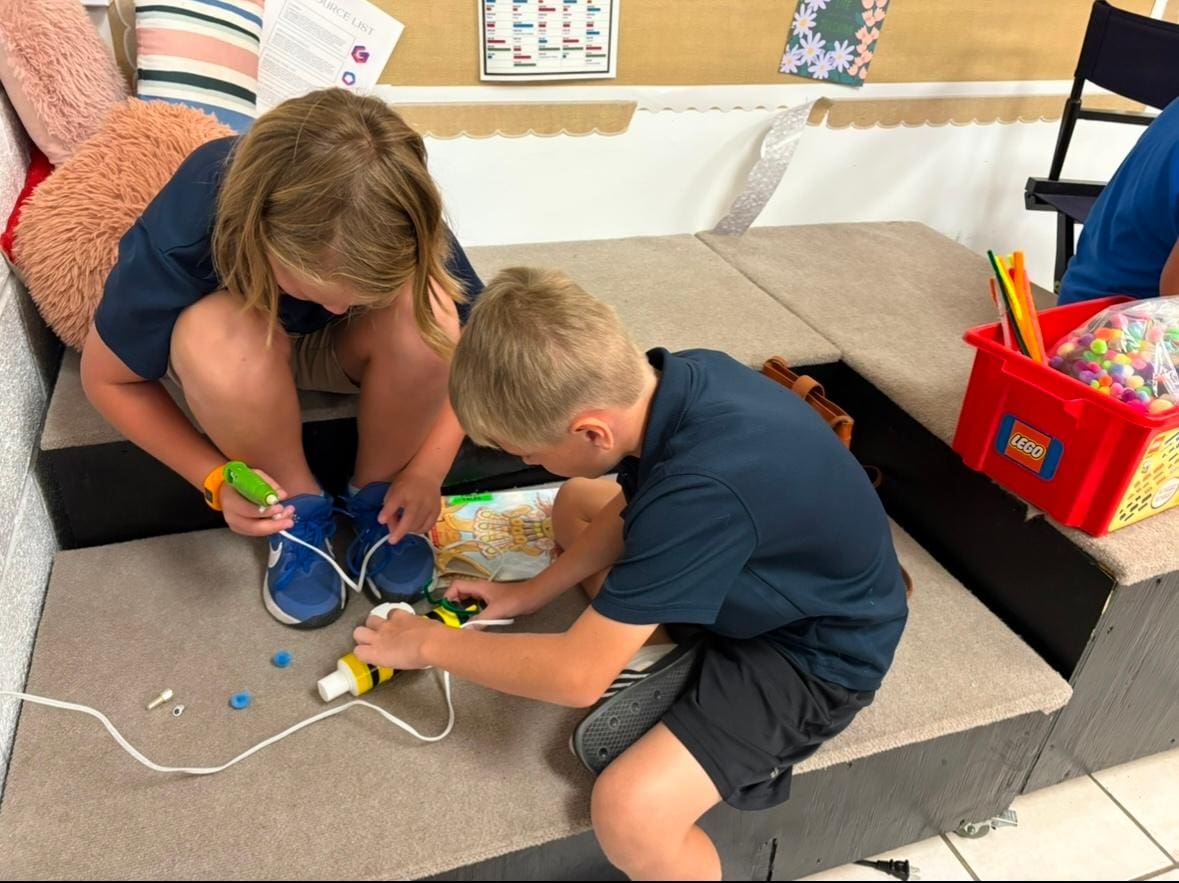
“It aligns perfectly with the fifth-grade science curriculum,” said Jeune´ Provost, executive director of the St. John School of the Arts who was formerly a teacher and administrator.
“There are nearly 20,000 known bee species in the world, and 4,000 of them are native to the United States. And all these bees have jobs as pollinators,” according to the United States Geological Survey. “Bees of all sorts pollinate approximately 75 percent of the fruits, nuts and vegetables grown in the United States, and one of every four bites of food people take is courtesy of bee pollination.”
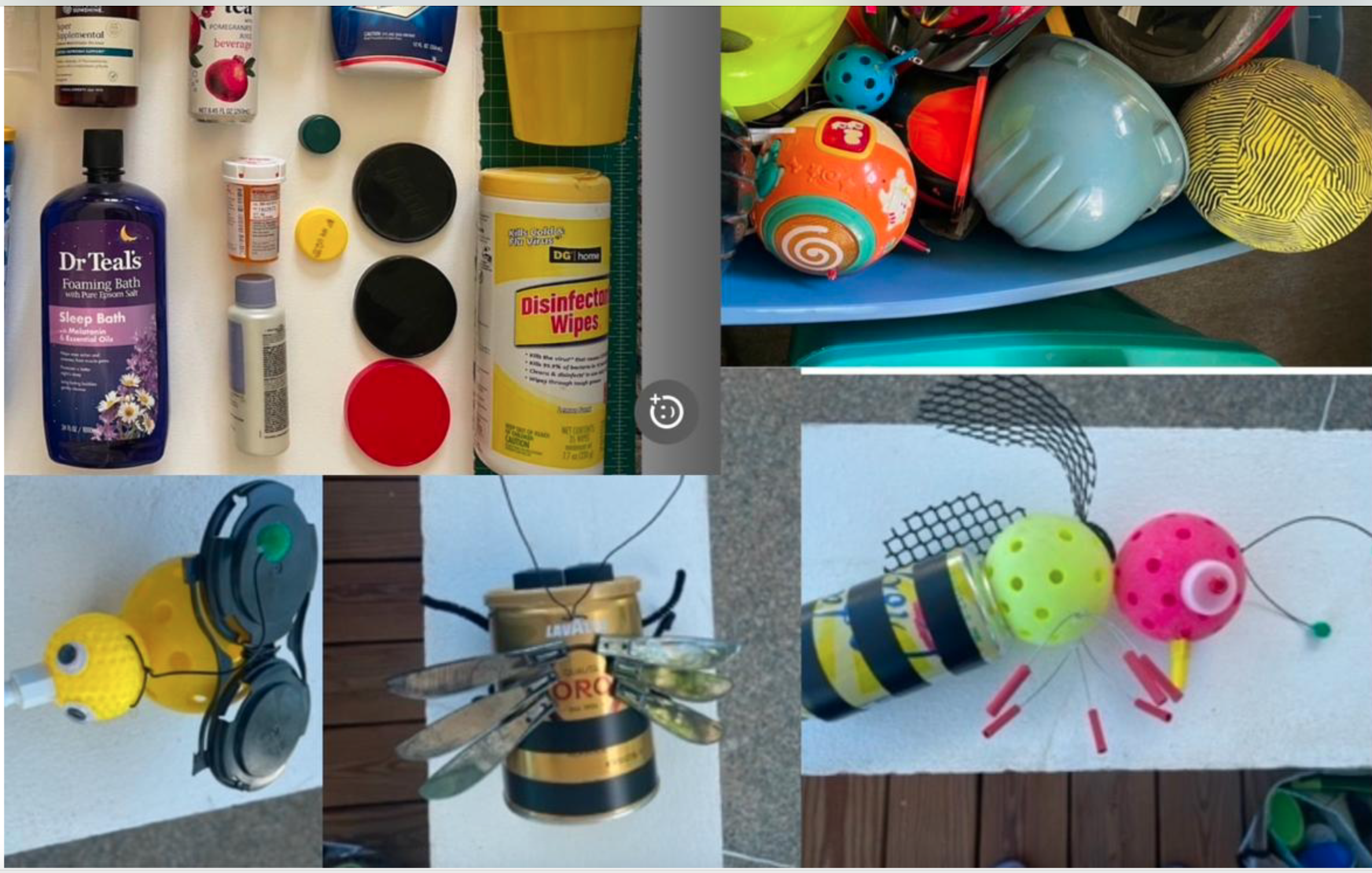
The St. John School of the Arts became involved when Elena Smyrniotis, the creator of the project, approached the school about hosting the project on St. John just as the school was looking to expand its Arts for Advocacy Program.
Smyrniotis began working with children in 2021 in Iowa, the heartland of America’s crop production. As a multimedia artist and educator, she gained funding through the Grant Wood Art Colony sponsored by the University of Iowa and the U. of I. Office of Sustainability and the Environment, and the Office of Community Engagement.
“Threats to both honeybees and wild bees are numerous,” according to Smyrniotis’ website. “For honeybees, pests and pathogens, such as mites and viruses, environmental stressors like pesticides or poor nutrition, and genetic limitations all contribute to varying degrees to what is popularly called ‘Colony Collapse Disorder.’ For wild bees, threats come from loss of habitat, reduction of floral resources, loss of nesting sites, and the use of chemicals.”
The facts are distressing, but an art project is an uplifting way to get people involved with the cause. It allows everyone — children, adults, and seniors — to unleash their creativity while working alongside others to improve the welfare of the community.
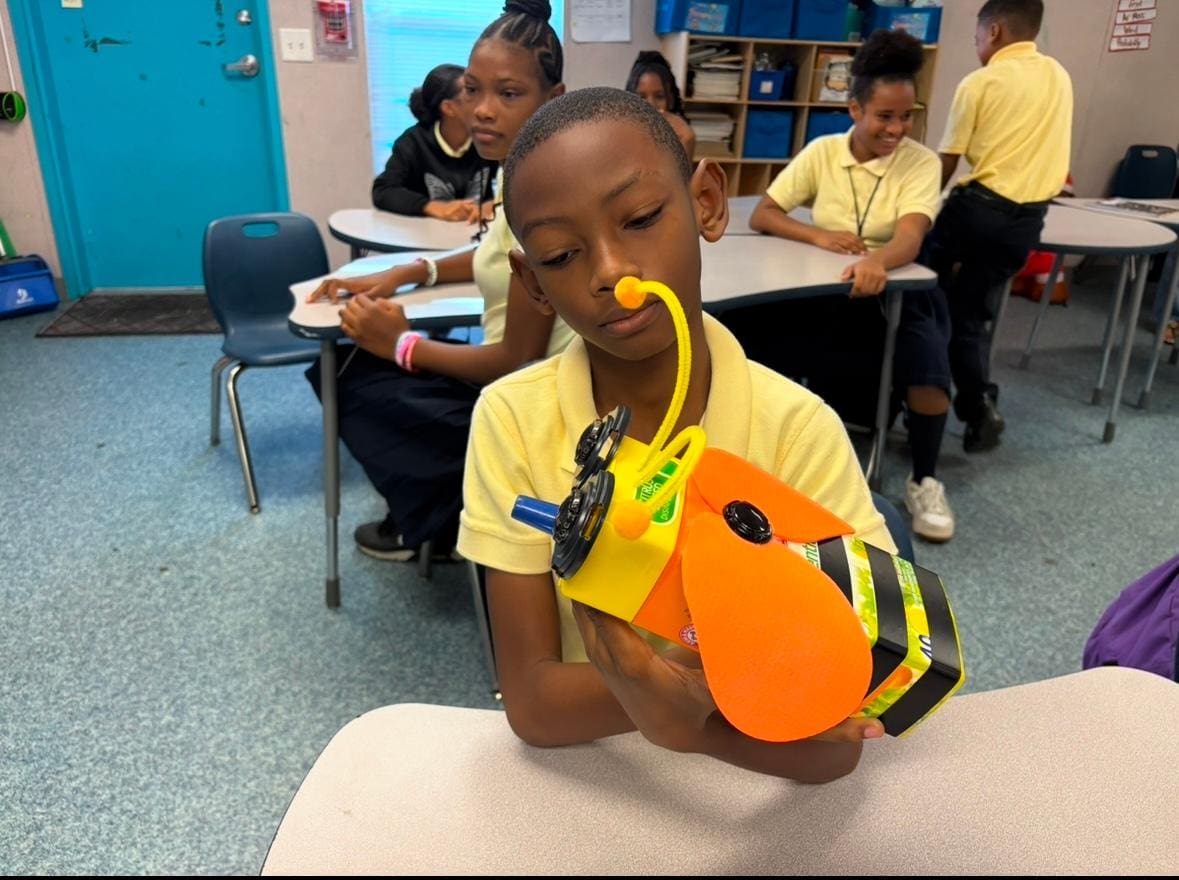
Provost said the project will continue throughout the year and include visits to schools by beekeepers and workshops at the senior centers on St. John. The St. John School of the Arts is looking for a welder to put together the hexagonal hive structure and an outdoor public location to present the project.
For further information, contact the SJSA at 340- 779-4322.


